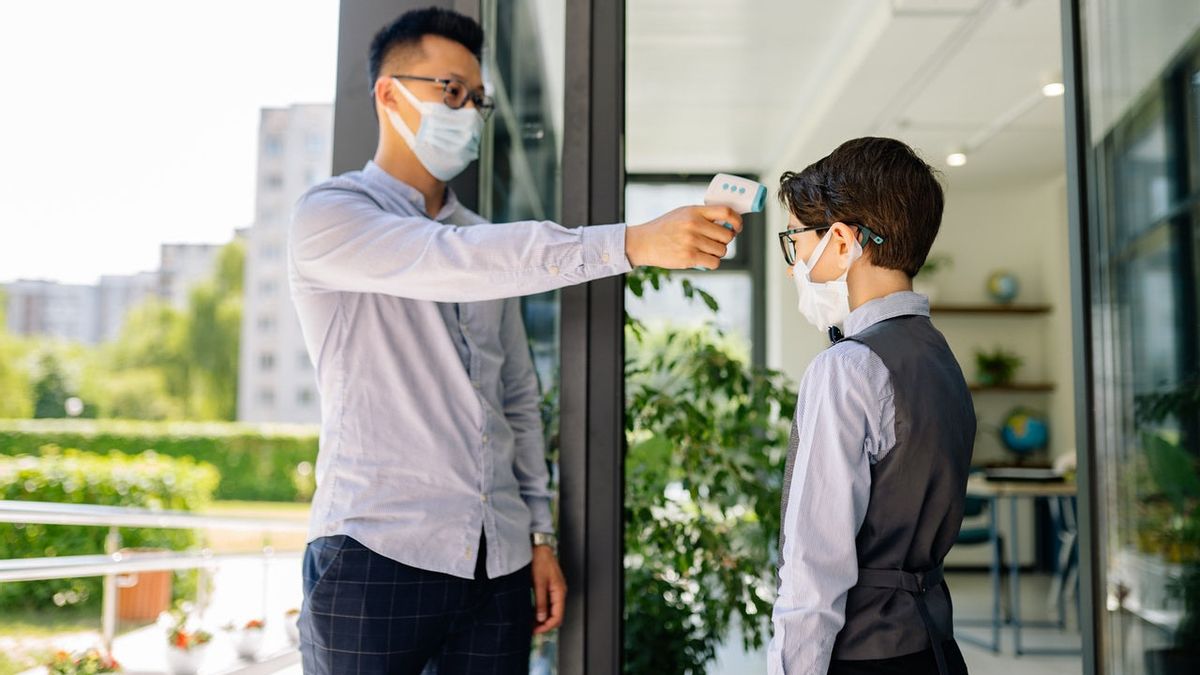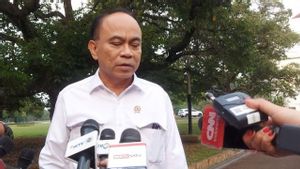JAKARTA - Consultant pediatrician, infectious disease and tropical pediatrics, Prof. Dr. dr. Hindra Irawan Satari, Sp.A(K), M.Trop.Paed from the Faculty of Medicine, University of Indonesia gave several danger signs when a child is exposed to COVID-19.
According to the doctor who also serves as the Chair of the National Committee for Post-Immunization Adverse Events (Komnas KIPI) of the Ministry of Health, although the symptoms of COVID-19 in children are often mild, there are signs that the child requires emergency treatment such as stiff neck, rash, glare, seizures, arms and legs. and cold, pale or bluish feet, unusual crying, and loss of consciousness.
"Danger signs also include shortness of breath, not wanting to breastfeed, not reacting because the brain has been hit, not wanting to eat and drink, and not wanting to carry out activities as usual," Hindra said as quoted by ANTARA, Saturday, March 12.
Hindra also reminded the existence of Multisystem Inflammatory Syndrome in Children (MIS-C) which can infect children with a history of being infected or having contact with people with COVID-19.
Hindra explained, MIS-C is a condition when various organs of the body, such as the heart, lungs, brain, kidneys, skin, eyes, and gastrointestinal tract, experience inflammation. MIS-C can be serious and cause death.
"However, most can recover with treatment," he added.
The MIS-C is characterized by a prolonged fever plus one or more of the symptoms such as stomach pain, redness of the eyes, diarrhea, dizziness, rash, and vomiting. Hindra reminded, these symptoms can be different for each child.
For information, confirmed cases of COVID-19 in children in Indonesia have increased sharply. From 676 cases on January 24, 2022, the number continues to rise to 7,190 cases on February 7, 2022. Since the appearance of the Omicron variant, 3 percent of deaths have occurred in children under five.
The five symptoms that most children experience when exposed to the Omicron variant of COVID-19, said Hindra, are runny nose, headache, fatigue, sneezing, and sore throat.
Therefore, Hindra, who is now practicing at Pondok Indah Hospital, reminded parents to always ensure that their children follow proper health protocols to prevent the transmission of COVID-19 and vaccinate them when the child is 6 years old.
"This health protocol must also be carried out together so that success can be achieved. Then the vaccine. Whatever the variant, the vaccine remains the same. The best vaccine is the available vaccine," said Hindra.
The English, Chinese, Japanese, Arabic, and French versions are automatically generated by the AI. So there may still be inaccuracies in translating, please always see Indonesian as our main language. (system supported by DigitalSiber.id)













